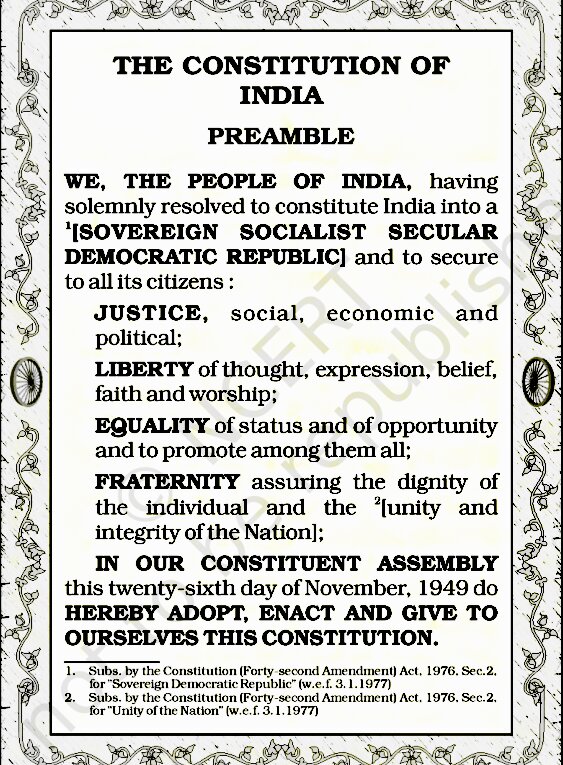





Disclaimer: Copyright infringement not intended.
Context
Preamble
India's preamble serves as the introductory statement to the Constitution of India, outlining the foundational principles and objectives upon which the Indian state is based. It reflects the aspirations and values of the Indian people and provides the guiding framework for governance and lawmaking.
Key Points:
Historical Context:
Significance:
Content:
Interpretative Value:
Evolution:
Conclusion:
|
PRACTICE QUESTION Q. Discuss the significance of the Preamble in the Indian Constitution. How does it serve as a guiding principle for governance and jurisprudence in India? Elaborate on its role in shaping the constitutional ethos and the interpretation of fundamental rights. The Preamble of the Indian Constitution serves as a key introductory statement that outlines the fundamental values, objectives, and aspirations of the Constitution. It encapsulates the essence and spirit of the Constitution, laying down the foundational principles upon which the governance of the country is based. Here's a detailed explanation of its significance:
In conclusion, the Preamble of the Indian Constitution is a concise yet profound statement that embodies the ideals, values, and aspirations of the Indian nation. It serves as a guiding beacon for governance, jurisprudence, and constitutional interpretation, ensuring that the spirit of the Constitution is upheld in all aspects of governance and societal life. |






© 2025 iasgyan. All right reserved